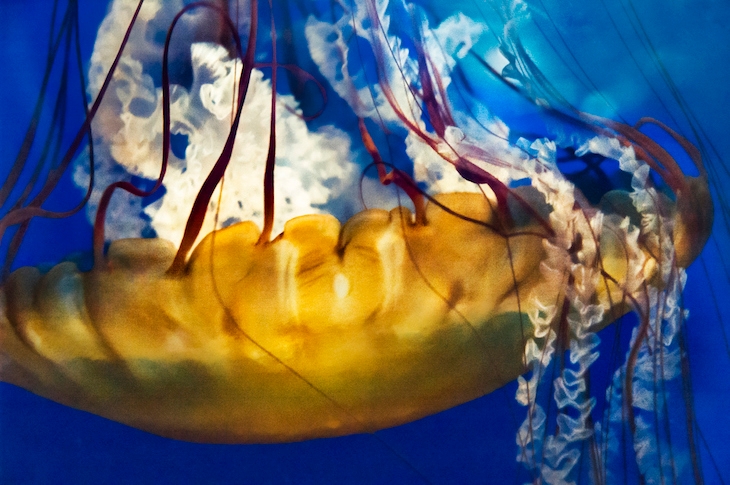Different people find different things impressive. Some claim, for instance, to experience a sense of wonder at the fact of being alive. But one has nothing to compare it to, so why find it surprising? Another sensibility will find joy in the observation of E.M. Cioran, the sardonic Romanian philosopher who wrote: ‘It is not worth the bother of killing yourself, since you always kill yourself too late.’ Between these two poles, this book offers a charming compendium of the astonishments that may be experienced in a human life.
It is, if you like, a miscellany of the sorts of things at which a secular reader may experience some analogue to religious awe. (Religion is mentioned late on, mainly for its social benefits.) The book is structured thematically, with chapters roughly about light, life, the heart, the brain, the self, the world and possible futures. The guiding discipline is science, of course, and there is much interesting history of science (for example, the impressive story of how people in the 17th century first figured out how to calculate the speed of light), as well as efficient rehearsals of our current understanding. (The explanation of just how much apparent precision engineering is packed into a human cell is one of the best passages.) But Caspar Henderson is also a man of high literary culture, so happily the text is studded with references to poets and philosophers, as well as, somewhat less compellingly, to the myths of pre-scientific cultures, which after all were simply theories of phenomena (like rainbows) that turned out to be wrong.
The book is delightfully crammed with fascinating facts about the planets, human vision, flocking birds and so on, and no one could fail to marvel at some subset of them. It takes photons so long to struggle outwards from the Sun’s core, for example, that the light we see from it today is probably older than the modern human species. Your heart pumps around 7,000 litres of blood every day. Dolphins talk to one another to figure out how to open food canisters. The world’s first lighthouse, the Pharos at Alexandria, was half as tall again as the Flatiron building in New York City. The book is beautifully produced, with splendidly wide margins in which footnotes or quotations are added, germane to the topic at hand in the main text. And some of the illustrations are wondrous themselves: a two-page diagram of the chemical processes inside a cell, or a very simple but awe-inspiring summary of the Sun’s past and future life-cycle.
Not all this material seems perfectly digested: some passages read like dry info-dumps that moreover sometimes fail to explain crucial terms. And there is a slight over-reliance on the fashionable concept of ‘emergence’ (whereby new and unpredicted properties can arise within systems), despite the author’s initial caveats about the term, especially when he surveys modern theories of consciousness.
On the other hand there are some lovely and funny lines. ‘I am content to gaze at jellyfish for longer than many people would consider sane,’ Henderson writes, before unleashing the beautiful image: ‘Golden jellyfish, dense as soup, circuit endlessly in a pilgrimage of unknowing.’ (It’s hard to tell whether this is meant to be a sardonic metaphor for human beings, but it works either way.) I also enjoyed the author’s mentions of the shed he was writing the book in, even though a growing shed-envy threatened to interfere with my sense of wonder. And Henderson describes perfectly the novelist Samuel Butler’s philippic against machines as making him sound ‘like a frock-coated Unabomber’.
There is, it must be said, occasionally something Panglossian about all this. Dürer’s celebrated engraving ‘Melancholia’, featuring a grumpy angel fiddling with a compass in front of some mathematical objects, is here interpreted rather more positively than is the norm — it is, the author decides, ‘an invitation to wonder’. But then what, on his scheme, isn’t? Throughout there is a slight sleeve-tugging sense that the reader definitely ought to wonder at the author’s examples because it is good for you, like vitamins or mindfulness. But is it? And is it not equally possible to wonder at what is not obviously good? One could well marvel, for example, at the long history of human depravity and stupidity, but it is not clear that such wonder would be an edifying emotion.
Such objections, though, are regularly quietened by the next fact that comes along. Did you know, for example, that we have discovered a distant planet where ‘the ocean is not water but magma and the torrential rains are of magnesium, aluminium and iron’? If you’d been born there, you’d certainly have a right to feel some wonder at being alive at all.






Comments